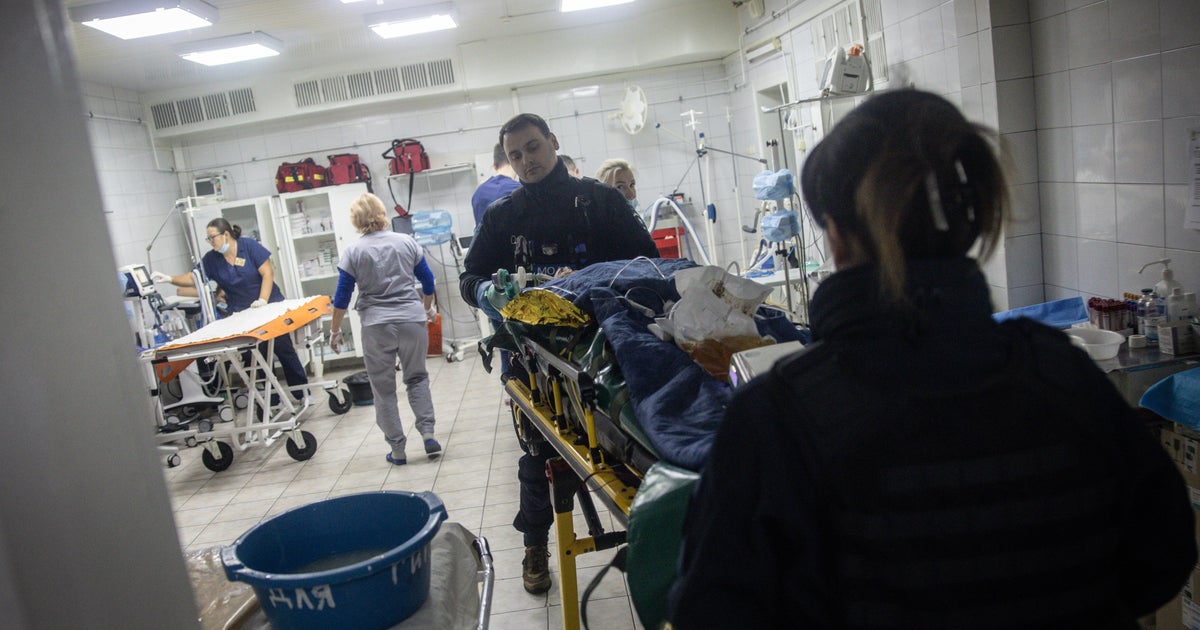[ad_1]
Hospitals in Ukraine at the moment are battling an “alarming improve” in germs with resistance to the last-ditch antibiotic drugs used to deal with the infections, a research printed by the U.S. Facilities for Illness Management and Prevention reported Thursday.
Officers at the moment are calling for the “pressing disaster” to be addressed, and warning that the drug-resistant germs are spreading past the war-torn nation’s borders.
The researchers, together with scientists from the CDC and Ukraine’s well being ministry, sampled lots of of Ukrainian sufferers for infections they caught whereas being handled on the hospital in November and December final 12 months.
Their surveys, detailed within the CDC’s Morbidity and Mortality Weekly Report, discovered that about 60% of sufferers with infections had been battling germs immune to carbapenem antibiotics. The CDC describes these sorts of antibiotics as usually the “final line of protection” medical doctors wield to battle off micro organism after different choices fail to work.
Against this, simply round 6.2% of samples of comparable sorts of infections had been immune to carbapenem antibiotics in a European research via 2017.
“In Ukraine, the confluence of excessive prewar charges of antimicrobial resistance, a rise within the prevalence of traumatic wounds, and the war-related pressure on well being care services is resulting in elevated detection of multidrug-resistant organisms with unfold into Europe,” the research’s authors wrote.
For years, well being officers have been warning of the mounting antimicrobial resistance menace posed by the continuing battle in Ukraine.
The CDC’s European counterpart warned in March 2022 that hospitals ought to preemptively isolate and display sufferers from Ukraine for multidrug-resistant organisms.
Germany reported final 12 months seeing infections from drug-resistant micro organism climb “quickly” after March 2022 throughout the nation, linked to refugees and evacuated sufferers from Ukraine.
The largest will increase in Germany had been for drug-resistant Klebsiella pneumoniae, whereas others related germs didn’t see massive jumps, suggesting that elevated screening couldn’t clarify the surge in studies of the worrying micro organism.
Klebsiella is an element of a bigger group of germs known as Enterobacterales that has been growing resistance to carbapenem antibiotics, which the CDC has deemed an “pressing” public well being menace.
Within the U.S., these drug-resistant micro organism are estimated to make up greater than 13,000 instances and 1,000 deaths every year. Round 5% of Klebsiella samples in 2021 had been reported to be resistant, in line with CDC knowledge.
Within the research printed Thursday, all of the Klebsiella samples they examined from the Ukrainian sufferers had been immune to carbapenem antibiotics.
Different drug-resistance threats have additionally been noticed in Ukraine.
In July, U.S. army medical doctors treating a Ukrainian soldier mentioned that they had discovered the affected person had been contaminated by six completely different “extensively drug-resistant micro organism,” together with Klebsiella pneumoniae, after he suffered traumatic burns throughout greater than half of his physique.
“Isolates had been nonsusceptible to most antibiotics and carried an array of antibiotic resistant genes,” the medical doctors wrote, in a report printed by the CDC’s Rising Infectious Ailments journal.
To successfully reply to the rising menace, the CDC’s report mentioned well being officers in Ukraine will want extra coaching and provides to buoy hospitals treating contaminated sufferers through the battle.
Labs in Ukraine have additionally struggled to safe sufficient provides and manpower to check infections for resistance, which is essential not only for assessing the scope of the menace but additionally for guiding medical doctors to resolve on methods to deal with troublesome infections.
“To handle the alarming improve of antimicrobial resistance in Ukraine, UPHC with help from worldwide companions, is growing regionally led and applied measures to handle antimicrobial resistance and can want ongoing help to scale them nationally,” they wrote.


